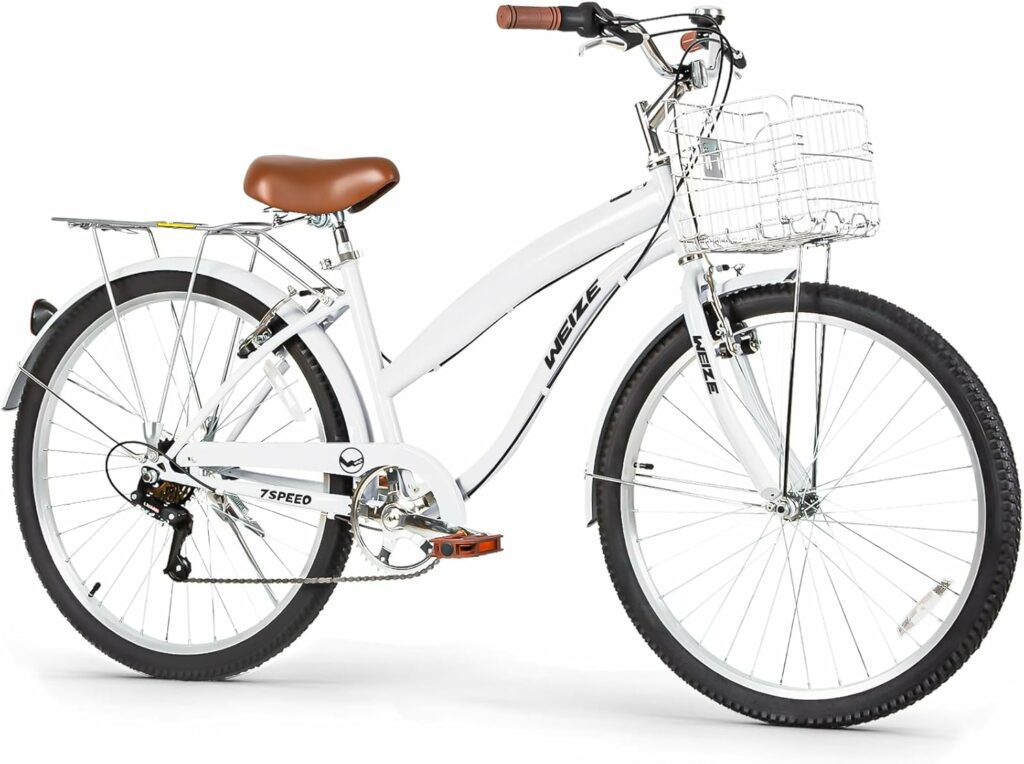Cycling is more than just a mode of transportation; it’s a lifestyle, a hobby, and a gateway to physical and mental well-being. Whether you’re pedaling through scenic countryside roads, commuting to work, or engaging in high-intensity cycling workouts, riding a bike offers a wealth of benefits. In a world increasingly focused on sustainable living, fitness, and mental health, cycling stands out as an activity that ticks all the right boxes.
Here’s a closer look at the five major benefits of cycling and riding a bike, illustrating why it’s a universally loved and impactful activity.
1. Physical Health Benefits
Cycling is a full-body workout that targets multiple muscle groups, enhances cardiovascular fitness, and promotes overall physical health. It’s an exercise that can be adapted to suit all fitness levels, from casual riders to professional athletes.
Cardiovascular Health
Cycling is an excellent aerobic exercise that strengthens the heart, lungs, and blood vessels. Regular cycling improves circulation, reduces blood pressure, and lowers the risk of heart-related diseases. Studies have shown that cycling just 30 minutes a day can significantly reduce the risk of coronary heart disease.
Muscle Strength and Toning
While cycling primarily works the lower body—engaging muscles like the quadriceps, hamstrings, calves, and glutes—it also strengthens the core and stabilizing muscles. Climbing hills or sprinting can add an anaerobic component, building muscle strength and endurance.
Weight Management
Cycling is a calorie-burning powerhouse. Depending on intensity and duration, you can burn between 400 and 1,000 calories per hour. Combined with a balanced diet, cycling helps manage body weight and reduces excess fat, contributing to a healthier physique.
Joint Health
Unlike high-impact exercises like running, cycling is gentle on the joints. It’s particularly beneficial for individuals with arthritis or those recovering from injuries, as it strengthens the muscles around the joints without putting undue stress on them.
Boosted Immunity
Cycling can improve your immune system by enhancing circulation and helping the body fight off infections. Research suggests that moderate-intensity exercise like cycling activates white blood cells, making them more effective at combating pathogens.

2. Mental Health Benefits
In addition to its physical advantages, cycling has profound effects on mental health. The rhythmic motion of pedaling combined with the soothing effects of fresh air and nature makes cycling a therapeutic activity.
Stress Reduction
Cycling is an excellent stress reliever. Physical activity stimulates the release of endorphins—natural mood boosters that combat stress and anxiety. Whether it’s a leisurely ride through the park or a challenging mountain trail, the meditative aspect of cycling helps clear the mind and reduce tension.
Combatting Depression
Exercise, including cycling, has been shown to alleviate symptoms of depression. The act of riding stimulates the production of serotonin and dopamine, chemicals responsible for feelings of happiness and pleasure.
Enhanced Cognitive Function
Cycling improves blood flow to the brain, enhancing cognitive functions such as memory, focus, and problem-solving skills. Regular cycling has even been linked to a reduced risk of neurodegenerative diseases like Alzheimer’s.
Improved Sleep
The physical exertion and fresh air from cycling contribute to better sleep quality. Studies show that regular cyclists fall asleep faster, sleep more deeply, and feel more refreshed in the morning.

3. Environmental Benefits
Cycling is a sustainable and eco-friendly alternative to motorized transport, making it a cornerstone of the green movement. Choosing a bike over a car for short trips can significantly reduce your carbon footprint and promote cleaner air.
Reduced Greenhouse Gas Emissions
Bicycles produce zero emissions, making them one of the most sustainable forms of transportation. By cycling instead of driving, you can help decrease air pollution and reduce reliance on fossil fuels.
Less Traffic Congestion
Cycling contributes to less crowded roads and reduces the demand for large infrastructure projects like highways and parking lots. This not only benefits the environment but also enhances urban livability.
Noise Pollution Reduction
Unlike motor vehicles, bicycles operate silently. A world with more bikes and fewer cars would mean quieter, more peaceful cities.
Preservation of Natural Resources
Manufacturing a bike requires far fewer resources than producing a car or motorcycle. Plus, bikes have a much longer lifespan and require minimal maintenance, further reducing their environmental impact.

4. Economic Advantages
Cycling is not only good for your body and the planet but also your wallet. Whether you’re a daily commuter or a recreational rider, the financial benefits of cycling can be substantial.
Low Transportation Costs
Bicycles are significantly cheaper to purchase, maintain, and operate than cars or motorcycles. There’s no need for fuel, insurance, parking fees, or expensive repairs. Commuting by bike can save you thousands of dollars annually.
Healthcare Savings
Regular cycling can prevent a range of health issues, from obesity to cardiovascular diseases, reducing medical expenses in the long run. By staying fit and healthy through cycling, you’ll likely spend less on doctor visits and medications.
Boosting Local Economies
Cyclists often support local businesses during their rides, such as cafes, bike shops, and convenience stores. This cycling-related commerce helps stimulate local economies and creates jobs in tourism and retail sectors.
Higher Productivity
Employees who cycle to work often report increased energy levels and productivity. Healthier workers mean fewer sick days, which is beneficial for both individuals and employers.

5. Social and Lifestyle Benefits
Cycling fosters connections, builds communities, and enhances quality of life. It’s a versatile activity that brings people together and allows for personal growth.
Community Building
Cycling clubs and group rides provide opportunities to meet like-minded people, forge friendships, and build a sense of community. Participating in events such as charity rides or races can also give a sense of purpose and fulfillment.
Family Bonding
Cycling is a family-friendly activity that encourages quality time and shared experiences. Whether it’s teaching a child to ride a bike or exploring a local trail together, cycling strengthens family bonds.
Exploration and Adventure
Bikes open up a world of exploration, allowing you to access areas cars can’t reach. From mountain trails to coastal paths, cycling is a gateway to adventure and discovery.
Lifestyle Changes
Cycling often inspires broader lifestyle changes, such as adopting a healthier diet, reducing screen time, or prioritizing outdoor activities. Over time, these changes contribute to a more balanced and fulfilling life.
Independence and Mobility
For those without access to a car or public transport, cycling provides an affordable and efficient means of mobility. It’s especially empowering for young people, offering a sense of freedom and independence.
Conclusion
Cycling is a simple yet transformative activity with benefits that extend far beyond physical fitness. From improving mental health and reducing environmental impact to saving money and fostering social connections, riding a bike is a holistic lifestyle choice. Whether you’re a seasoned cyclist or just getting started, the advantages of cycling make it one of the most rewarding ways to move through life. So grab your helmet, hop on your bike, and pedal your way to a healthier, happier, and more sustainable future.




